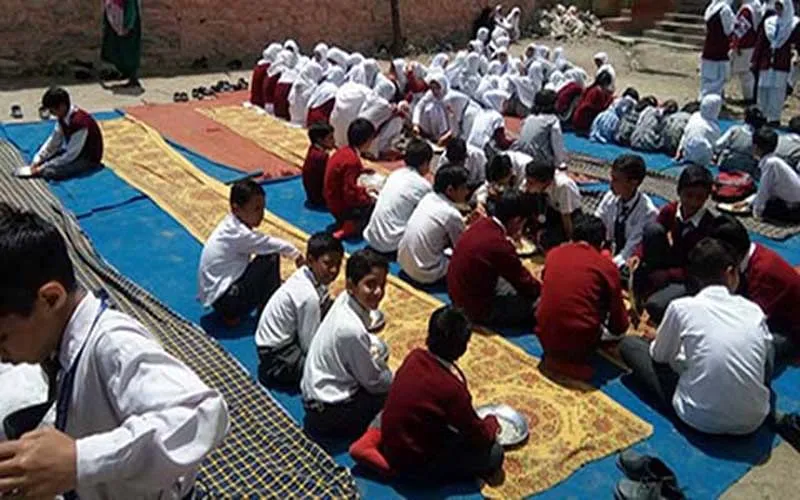The social audit report of Mid-Day Meals (MDM) by the University of Kashmir (KU) has suggested that the scheme should be outsourced for its proper implementation in the government schools.
The social audit was done by the KU’s Department of Social Work with the support of School Education Department. The social audit was conducted in Ganderbal and Budgam districts from June to November 2018.
On the basis of the opinions shared by the teachers, the report has suggested that the MDM should be outsourced for its proper implementation in schools.
“Most of the teachers were of the opinion that this scheme should be outsourced,” the major findings of the report read.
The department had in 2015 and 2016 decided to outsource the implementation of MDM scheme in schools to relieve the teachers of this additional charge.
However, the initiative was shelved for reasons unknown.
Meanwhile, the findings of the report state that the parents and communities wanted the scheme to continue and see a lot of positive impact and benefits in it.
“MDM helps children from poor and marginalized families attend school and this scheme has also benefitted cooks coming from different socio-economic backgrounds,” the report reads.
It states that the enrollment of children has gradually increased through MDM and also reduced absenteeism among children.
“The children of tribal communities, through MDM, have access to lunch when their families move to higher altitudes for livestock grazing,” it reads. “The discrimination with children was however explored especially in case of tribal and migrant populations.”
According to the report, the MDM scheme has increased interest in the children to attend government schools and there has also been a decrease in drop-out rate to a large extent.
However, the findings of the report state that the school management committee members and other community members generally seem to be least interested in monitoring and supervising of the scheme at the local level.
“Similar is the case of parents whose wards attend government schools,” it reads.
Besides the positives, the report has highlighted the shortcomings of the department which has marred the proper implementation of the scheme.
The findings of the report suggest that the government schools are without separate rooms for children to take meals and as a result the students are forced to eat meals in open space or classrooms.
“Most of the time, the children eat meals in open space or classrooms as majority of the schools hardly have any separate space for eating meals during lunch time,” the report reads.
“Also, the food items are either kept in school classrooms, offices or verandahs as only 13.80 percent schools have storage shed in the school premises. A total of 86.20 percent of cooks interviewed said that food items are either kept in school classrooms, office or verandah,” it reads.
The report states that the social audit project had led to a lot of changes in the selected sample schools and suggested covering all the districts of J&K for social audit of the scheme.






